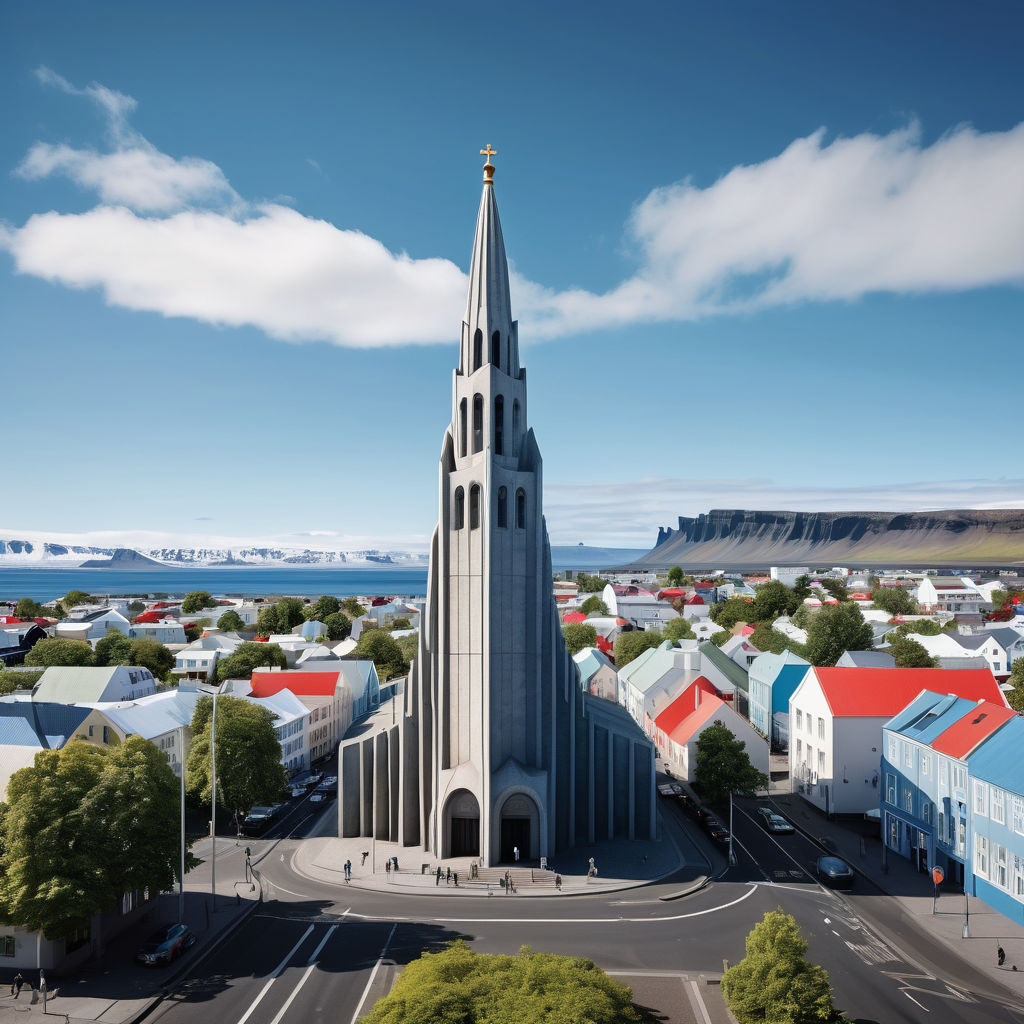Introduction to Iceland: A Land of Natural Wonders and Rich Cultural Heritage
Discover Iceland: A Nordic Island of Geysers, Glaciers, and Viking Traditions

Introduction to Iceland
Iceland, a Nordic island nation in the North Atlantic Ocean, is renowned for its stunning natural landscapes, including geysers, hot springs, waterfalls, glaciers, and volcanoes. Geographically located between Greenland and Norway, and just south of the Arctic Circle, Iceland is the most sparsely populated country in Europe. The capital city, Reykjavik, is the largest city and serves as the political, economic, and cultural hub of the country. Iceland’s rich cultural heritage is deeply rooted in its Viking history and traditions, combined with contemporary influences. The cultural heritage of Iceland is celebrated through various art forms, literature, and music. Icelandic sagas, ancient stories of heroism and adventure, form a crucial part of the nation’s literary tradition. The country is also known for its vibrant music scene, with genres ranging from traditional folk music to contemporary pop and rock. Festivals like Reykjavik Arts Festival and Iceland Airwaves attract international attention, showcasing the country's cultural vibrancy and artistic innovation.
Cross-national and Cross-cultural Understanding
Icelanders generally exhibit a welcoming and open attitude towards other cultures. This openness is fostered by the country’s history of trade, exploration, and the inherent curiosity of its people. Icelanders value cross-cultural understanding and are accustomed to interacting with people from various backgrounds. Cultural exchanges are a significant part of life in Iceland. The country hosts numerous festivals and events that celebrate both local and international traditions. The Reykjavik International Film Festival, for example, brings together filmmakers and audiences from around the world, promoting cross-cultural dialogue through cinema. Additionally, the Icelandic Language Day celebrates the Icelandic language while promoting the importance of multilingualism and cultural exchange. Educational programs in Iceland emphasize global awareness and cross-cultural understanding. Schools and universities incorporate multicultural perspectives into their curricula, encouraging students to appreciate and respect diversity. The University of Iceland and Reykjavik University collaborate with international institutions to facilitate student and faculty exchanges, enriching the educational experience and fostering global connections.
Interactions and Social Dynamics
Typical interactions between Icelanders and foreigners are characterized by friendliness, respect, and a strong sense of community. Social behaviors in Iceland reflect a blend of traditional customs and contemporary influences, emphasizing respect for others, hospitality, and communal living. Communication styles in Iceland are generally direct yet courteous. Icelandic is the official language, but English is widely spoken, especially in urban areas and among younger generations. This bilingualism facilitates interactions with tourists and expatriates, making it easier for them to integrate into the local community. Cultural norms in Iceland place a strong emphasis on equality, respect for personal space, and a relaxed approach to time. These norms create a welcoming and inclusive atmosphere for foreigners, who often find it easy to adapt to the local way of life. Public displays of affection are generally accepted, reflecting the country’s liberal social attitudes.
Views on Dating and Relationships
Attitudes towards dating and relationships with foreigners in Iceland are generally open and accepting. Icelanders recognize the opportunities for cultural exchange and personal growth that such relationships can bring. However, cultural expectations and traditions do play a role in shaping these views. Family involvement in relationships is less pronounced in Iceland compared to many other cultures. Icelandic society places a high value on individual freedom and autonomy, allowing individuals to make their own decisions regarding relationships. While modern dating practices influenced by global trends are common, traditional values such as mutual respect and honesty still hold sway.
Marriage and Family
Marrying a foreigner in Iceland involves navigating both legal and social considerations. Legally, the country has clear regulations governing marriage, including residency requirements and the need for proper documentation. Socially, cross-cultural marriages are generally accepted, though couples may face challenges related to cultural differences and integration. Familial acceptance is important but not as critical as in some other cultures. Icelandic families are typically open-minded and accepting of different cultural backgrounds, which can facilitate smoother integration for foreign spouses. The emphasis on equality and respect within Icelandic society supports the acceptance of cross-cultural marriages. Trends in cross-cultural marriages reflect Iceland's open and inclusive society. Many Icelanders who travel abroad for education or work form relationships with individuals from various cultures, bringing back diverse customs and traditions that enrich the local community.